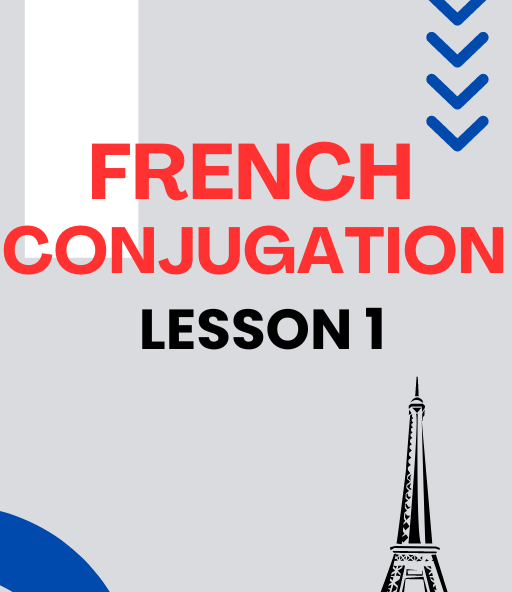
French Conjugation – Lesson 1
This course will improve your communication by teaching you how to use conjugation to clearly express actions and tenses. Mastering conjugation enhances your grammatical accuracy, allowing you to construct complex sentences and communicate fluently. Additionally, it strengthens your listening skills, helping you better understand spoken French.
Availability:In Stock
The course includes:
–Être & Avoir Conjugation: The verbs “être” (to be) and “avoir” (to have) are fundamental irregular verbs in French
–Regular ER/IR/RE Verbs in the Present Tense: Regular ER, IR, and RE verbs follow specific patterns in the present tense, making them easier to conjugate once these patterns are learned.
–Recent Past Tense: The recent past tense, formed using “venir de” + infinitive, is used to describe actions that have just occurred.
-The Past tense with “Avoir”: known as the passé composé, is used to describe completed actions or events that occurred in the past.
–Reflexive Verb: Reflexive verbs indicate that the subject performs an action on itself, commonly used to describe daily routines and personal actions.
–16 House Verbs: The 16 house verbs, conjugated with “être” in the passé composé, describe movement or change of state and are crucial for mastering past tense narration.
–Future Tense: The future tense expresses actions that will occur, formed by adding specific endings to the infinitive form of verbs.
–Near Future Tense: The near future tense, formed with “aller” + infinitive, is used to talk about actions that are going to happen soon.
–Imperfect Tense: The imperfect tense describes ongoing or habitual actions in the past, often used for background descriptions in storytelling.
–French Irregular Verb: Irregular verbs do not follow standard conjugation patterns and must be memorized individually due to their unique forms in various tenses.